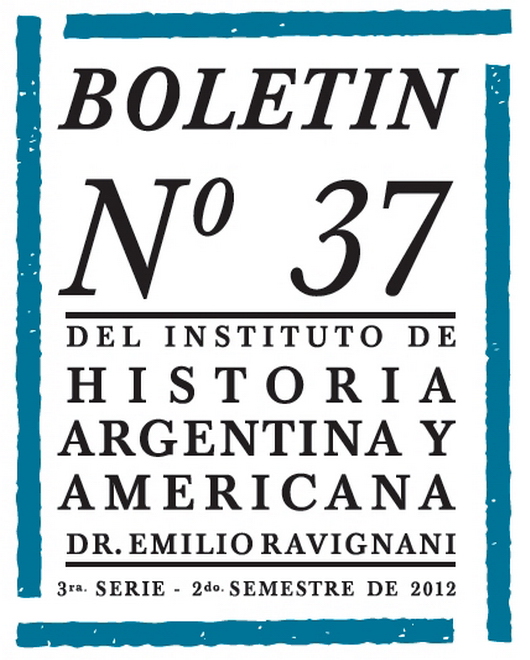LA UNANIMIDAD EN DEBATE. LOS PROCESOS ELECTORALES EN LA CAMPAÑA DE BUENOS AIRES ENTRE 1815 Y 1828
Abstract
This article examines the electoral processes developed in the countryside of Buenos Aires between 1815 and 1828, and is centered in discussing its so-called unanimous character. We consider that the issue of unanimity is central, since it assumes the absence of conflicts, the total control of the electoral process by local authorities and the subordination of the countryside to the city. This point of view implies that towns and rural inhabitants were both passive and simple receptors of the construction of a new legitimacy and, also, that the mechanisms to put this process into practice were only originated in the city and among the elites. So, our aim is to put to test this historiographical interpretation, using sources to see through them actual electoral practices, which show a different and more complex outlook.Downloads
The copyright is transferred to the Boletín, but the authors may retrieve them and reproduce their work in other media or formats by means of a written request to the Editorial Committee. In such cases, the Boletín will be cited as the first publication of the work.
The works are licensed under a Creative Commons Attribution-NonCommercial 4.0 International License, which allows others to share the work with an acknowledgment of their authorship and initial publication in this journal.
Also, by written request to the Editorial Committee of the Boletín, the authors may separately establish additional agreements for the non-exclusive distribution of the version of the work published in this journal (for example, placing it in an institutional repository or publishing it in a book), with an acknowledgement of its initial publication here. No commercial uses are allowed.



















